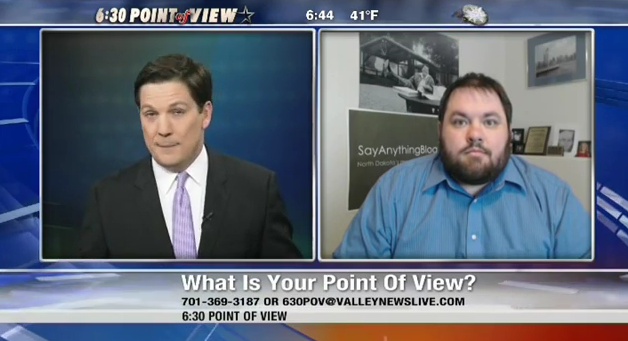On Television: Special Session, Nursing College Bailout

During my weekly “Say Anything Segment” with Chris Berg on Valley News Live last night we discussed Governor Jack Dalrymple’s decision on holding a special session (in case you’ve been living under a rock, he said no) and the decision by the State Board of Higher Education to approve NDSU’s acquisition of a nursing college without asking the Legislature.
Something lawmakers will now be reviewing in committee.
On the issue of the special session, I really think western North Dakota dodged a bullet. Splitting their needs into a special session and then a regular session would have been a disaster. The push for a special session was always more about Democrats and election year politicking than sound governance.
There was also an interesting discussion about the minimum wage between a supporter of that policy and a Fargo-area businessman who opposes it. I thought the businessman made good points, but I would have asked this question: Where does the money to pay for a higher minimum wage come from?
That seems to get little attention during minimum wage debates. Because it doesn’t just appear out of thin air. You can’t raise the wages of millions of workers without having other impacts in the economy. Nor do those impacts accrue to who we think.
Walmart often gets bashed for low wages, but that has less to do with the minimum wage than the company’s opposition to unions. Truth is, Walmart pays most of its workers above even the $10.10 federal minimum wage activists are pushing for today (the average wage for full-time Walmart workers is $12.81 per hour).
In fact, the company is often seen supporting higher minimum wages because of who really gets hurt by the policy, which is the company’s smaller, more regional competitors.
Do we want an economy where only companies large enough to absorb costly policies like the minimum wage can survive? I don’t.




